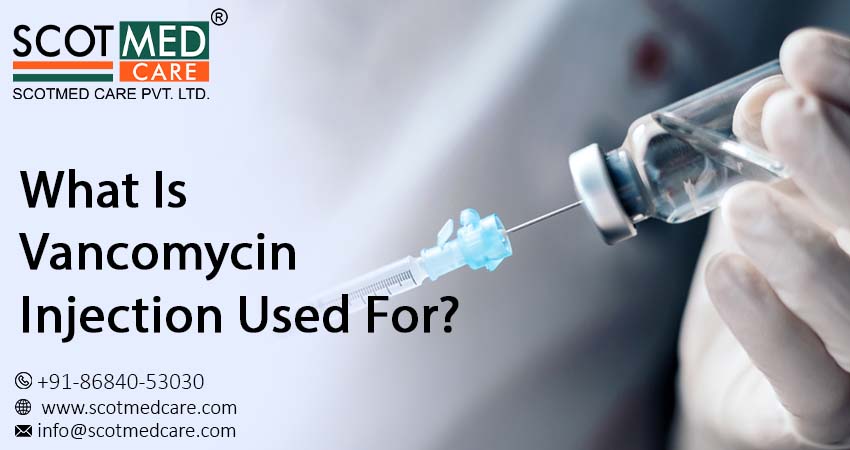Vancomycin injection is a powerful antibiotic, which helps in treating serious bacterial infections. It is sometimes administered after the other antibiotics have failed. The medicine is mainly used in hospitals. Vancomycin stops bacteria from growing. It is infused into a vein usually through an IV drip. It can treat diseases such as MRSA and some severe skin infections. Possible side effects of vancomycin include pain at the site of injection, kidney complications, and hearing loss, among others that are less common. Doctors watch patients who are on the drug so that there aren’t any problems detected and that it works well as expected.
How Vancomycin Injection Works?
Vancomycin injection works to kill bacteria by attacking their cell walls. Bacteria must have strong cell walls to survive and reproduce. However, vancomycin inhibits the formation of these walls, thus decreasing their strength and leading to bacterial weakness and death. This helps in preventing the spread of infection throughout the body. It is through an IV that medicine is administered into the bloodstream directly so that it can get at bacteria as quickly as possible and destroy them. This makes vancomycin very useful when other antibiotics have been used without success since it has great strength. It specifically isolates resistant bacterial strains such as MRSA which makes it a valuable agent in managing severe infections.
Uses of Vancomycin Injection
Vancomycin injection is used in the treatment of various serious bacterial infections. Below are its major uses:
Serious Skin Infections
Vancomycin is effective against severe skin infections caused by antibiotic-resistant bacteria.
Bloodstream Infections
It treats sepsis or blood poisoning which are very serious types of infection.
Bone and Joint Infections
Vancomycin works for those bone and joint infections that cannot be cured by other antibiotics.
Heart Infections (Endocarditis)
It treats life-threatening heart valve, and lining infections (endocarditis).
Pneumonia
Vancomycin is used to treat severe lung infections especially when it comes to drug resistant bacteria mediated pneumonia.
Methicillin-Resistant Staphylococcus Aureus (MRSA)
It is specially good at fighting MRSA, a type of bacteria that is hard to kill using the typical antibiotics.
Colitis (caused by Clostridium difficile)
Once in a while vancomycin can be used to treat dangerous gut bacterial infections from specific germs.
Dosage and Usage of Vancomycin Injection
Vancomycin injection dosage and usage rely on the patient’s age, weight, kidney function, type, and severity of infections. As a rule, it is infused intravenously (IV) in an intensive care unit with close medical supervision. The dose should be calculated carefully to obtain adequate blood levels without causing harm.
Commonly for adults the daily dosage ranges from one to two grams that are divided into every 8-12 hours during the day. It may differ according to the particular kind of infection that is treated. Instead for children, it will depend on their weight.
Monitoring of vancomycin levels in the blood is critical among medical practitioners as this is maintained within safe and effective limits of therapeutic range. The duration of treatment depends also on how the infection reacts to medication
It’s important to take all prescribed doses of vancomycin even if you feel well as if not so then there is a chance that bacteria will develop resistance against it.

Conclusion
We hope that with the help of this blog, you understand the uses of Vancomycin Injection. If you need more information about this injection you can connect with us, we are a trusted Vancomycin Injection manufacturer. We offer a high-quality Vancomycin Injection at an affordable price point. You can join hands with Scotmed Care and get a high-quality Vancomycin Injection.







